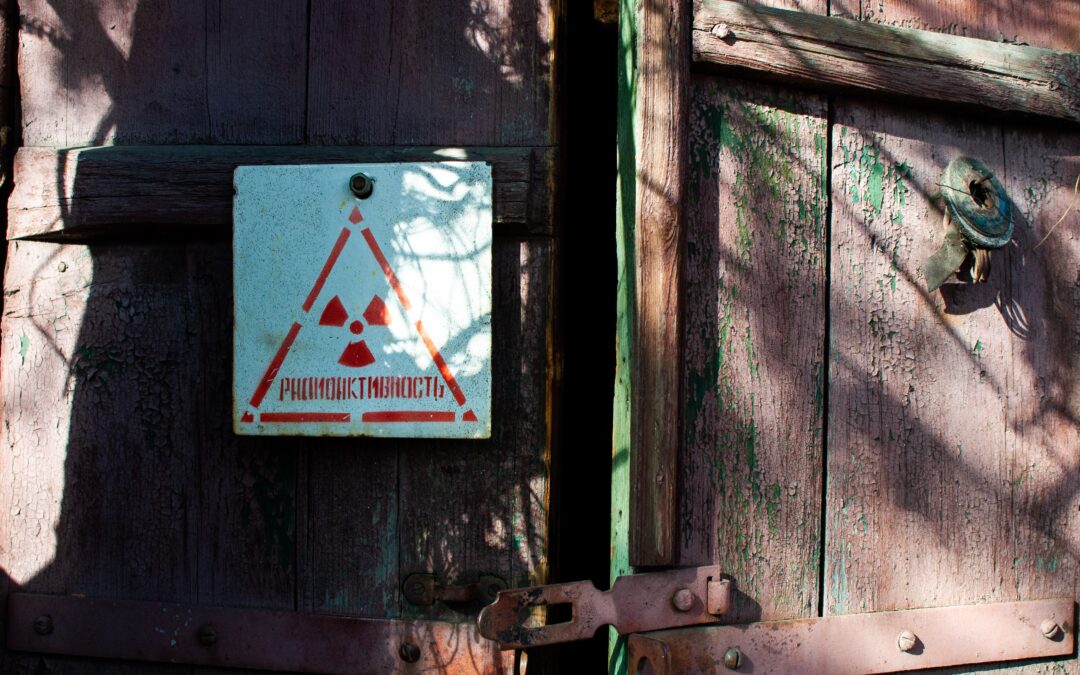Authorities in Poland’s 16 provinces have been working to establish supplies of potassium iodide tablets and distribution points for them in the case of a nuclear emergency resulting from Russia’s war in Ukraine.
In Warsaw, over 600 distribution points have been established in kindergartens, schools and municipal offices. The Masovia province in which the capital is located has a total of almost 1,600 such points, with a list made available online.
The network will allow tablets to be swiftly distributed in the case of nuclear contamination, says provincial governor Konstanty Radziwiłł. He notes that the action is being taken “in connection with the war in Ukraine”, where there have been concerns about the safety of nuclear facilities and of possible use by Russia of nuclear weapons.
However, Radziwiłł emphasised that the preparations are “preemptive” and currently there is no “radiation emergency”.
Amid concerns over nuclear plants in neighbouring Ukraine, Poland has supplied fire departments with potassium iodide tablets to be distributed in a radiation emergency.
But the authorities have assured the public that there is "currently no such threat" https://t.co/kigr93tKhh
— Notes from Poland 🇵🇱 (@notesfrompoland) September 20, 2022
Other Polish provinces have also received deliveries of iodide tablets, with Małopolska, where Kraków is located, confirming it has 5.5 million pills (for a population of around 3.4 million) and Pomerania, whose capital is Gdańsk, receiving over 4 million (for a population of 2.3 million).
Provincial governors are working now to set up a network of delivery points to streamline distribution. Comprehensive lists are to be published later this week.
In the event of confirmed nuclear contamination, the potassium iodide tablets would be distributed to help prevent the absorption of radioactive iodine by the thyroid gland.
“Everyone who arrives at the distribution point will be served,” pledged Radziwiłł. “Pills for everyone in sufficient doses have been secured.”
The governor also assured that tablets can be collected not only by those living or working in the province and that there will be no restrictions concerning nationality. Iodine tablets can also be collected by household members or neighbours.
“After a failure [of a nuclear power plant] we have 24 hours to distribute the pills, in practice a bit less than that,” he added, appealing, however, to the public for “understanding and cooperation” without panic in such a situation.
The interior ministry has published a leaflet explaining some of the key issues, such as who should not take potassium iodide tablets and what the advised dosage is for different age groups.
📣 Broszura informacyjna #ProfilaktykaJodowa 💊 pic.twitter.com/LehaHBeBwY
— MSWiA 🇵🇱 (@MSWiA_GOV_PL) September 30, 2022
The brochure also highlights that the National Atomic Energy Agency (PAA) continuously monitors the level of radiation throughout Poland and publishes hourly results on its website as well as daily information on social media.
“Currently on the territory of Poland, there is no threat to life, health or the environment,” informed the PAA on Thursday morning. “The National Atomic Energy Agency has not detected any disturbing readings of the measuring systems.”
In the absence of any radiation risk, the National Atomic Energy Agency advises against the consumption of products with stable iodine, including so-called Lugol’s iodine.
@PAAtomistyki nie odnotowała żadnych niepokojących wskazań aparatury pomiarowej. Obecnie na terenie RP nie ma zagrożenia dla zdrowia i życia ludzi oraz dla środowiska. Monitorujemy sytuację radiacyjną w kraju. pic.twitter.com/AuO6vMrSpi
— Państwowa Agencja Atomistyki (@PAAtomistyki) October 6, 2022
Main image credit: Nal on Unsplash

Agnieszka Wądołowska is deputy editor-in-chief of Notes from Poland. She is a member of the European Press Prize’s preparatory committee. She was 2022 Fellow at the Entrepreneurial Journalism Creators Program at City University of New York. In 2024, she graduated from the Advanced Leadership Programme for Top Talents at the Center for Leadership. She has previously contributed to Gazeta Wyborcza, Wysokie Obcasy and Duży Format.




















